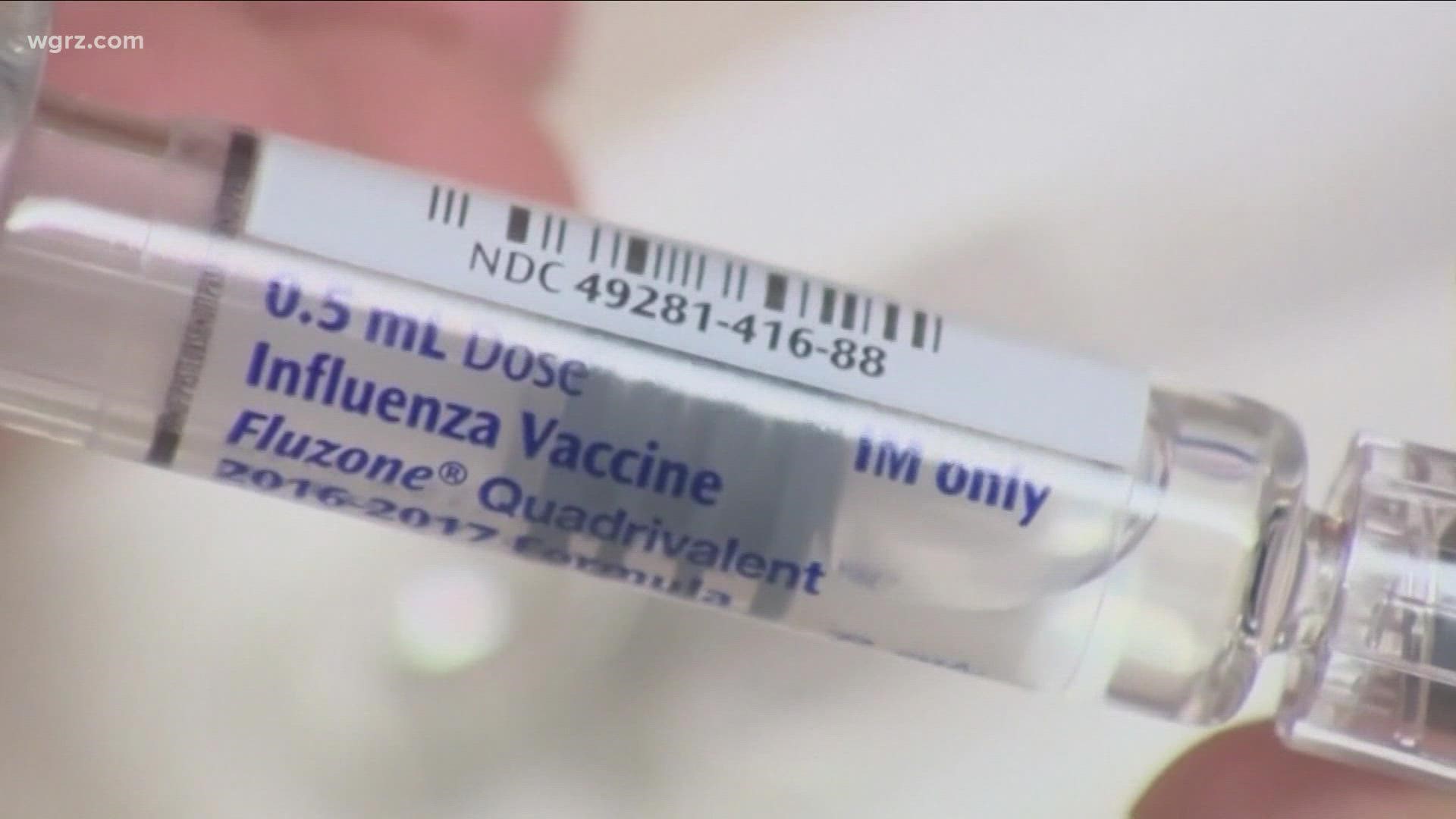BUFFALO, N.Y. — Medical experts say, when it comes to the flu, the last couple of seasons have been significantly lower in case of numbers thanks to COVID-19 safety measures like masking, social distancing, and lockdowns. But there's a growing concern among agencies like the CDC and World Health Organization when it comes to looking at the percentage of people who are getting routinely recommended vaccinations.
According to CDC data, three out of every four adults in the U.S. are missing one or more of their recommendation vaccines, including the flu shot.
While both adult and pediatric flu cases hit notable lows last year, this year, doctors fear the flu season could be a disaster if people don't start to take flu shots seriously.
Dr. Chet Fox is the Chief Medical Officer at the Greater Buffalo United Accountable Health Network and says understanding how vaccines work largely impacts whether or not someone decides to go and get vaccinated.
"One vaccine has nothing to do with the other," Dr. Fox explains. "That's one reason why we give the measles, mumps, and rubella shot together. If I just give the measles shot it doesn't protect from mumps or rubella. The same goes for COVID and the Flu. You have to give a separate vaccine for each virus."
The CDC recommends that everyone 6 months and up to get a flu shot. Dr. Fox says as kids return to school and specifically into the classroom, this is going to be extremely important.
"The flu virus changes every year. So yes, if we don't encourage adults to get their children vaccinated we are going to see even more of these cases and potentially other respiratory viruses peak at the same time," Dr. Fox says.
As the Delta variant, and others, continue to evolve, Dr. Fox says, it's becoming increasingly more important that people understand the risk that comes with fighting multiple like-minded viruses at the same time.
"It's one thing to have the flu. It's one thing to have COVID, the odds are likely many people can live fighting those individual viruses, but when combined, now you are talking about a whole different challenge," Dr. Fox explains.
When it comes to vaccinations, while not 100 percent, experts say they are the best tool to help control outbreaks and keep communal spread down - and the numbers prove it.

